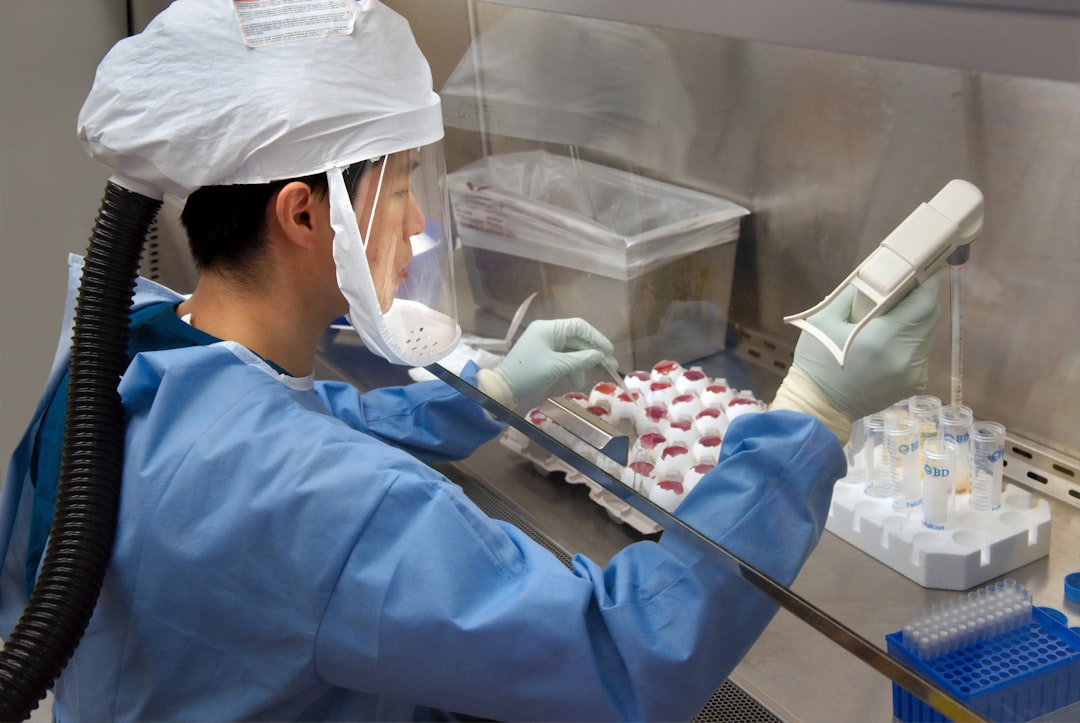“`html
AI Revolutionizes Drug Discovery: A Faster Path to Life-Saving Medications
The process of discovering and developing new drugs is notoriously slow, expensive, and fraught with failure. It can take over a decade and billions of dollars to bring a single drug to market, with a high probability of the drug failing during clinical trials. But now, artificial intelligence (AI) is changing the game, offering the potential to significantly accelerate and improve the entire drug discovery pipeline. This isn’t just about incremental improvements; it’s a fundamental shift in how we approach the search for new medicines.
Why is AI a Game Changer?
AI excels at tasks that are time-consuming and complex for humans. Think massive datasets, intricate patterns, and predicting the behavior of molecules. The traditional drug discovery process involves:
- Target Identification: Identifying the specific biological target (e.g., a protein) involved in a disease.
- Lead Discovery: Finding molecules (leads) that can interact with that target.
- Optimization: Refining those leads to improve their effectiveness and safety.
- Preclinical Testing: Testing the optimized leads in lab settings and animal models.
- Clinical Trials: Testing the drug in human patients.
AI can significantly impact each of these stages. For example, AI algorithms can analyze vast genomic databases to identify promising drug targets that might have been missed by human researchers. It can also predict the interactions between molecules and proteins, helping to narrow down the search for potential drug candidates.
How AI is Currently Being Used in Drug Discovery
AI is being used in a variety of ways to accelerate drug discovery. Here are a few key examples:
- Target Identification and Validation: AI can sift through mountains of biological data (genomics, proteomics, transcriptomics) to pinpoint potential drug targets with greater accuracy.
- Drug Repurposing: AI can analyze existing drug databases to identify drugs that might be effective against new diseases. This can significantly shorten the development timeline, as the drug has already been tested for safety.
- De Novo Drug Design: AI algorithms can design entirely new molecules with specific properties, opening up possibilities for treating diseases that are currently untreatable. This process is often referred to as “generative AI” for drug discovery.
- Predicting Drug Efficacy and Toxicity: AI models can predict how a drug will interact with the body, helping to identify potential side effects and optimize the drug’s dosage.
- Clinical Trial Optimization: AI can help to identify patients who are most likely to respond to a particular drug, making clinical trials more efficient and effective. AI is also being used to optimize clinical trial design, potentially reducing the time and cost associated with these crucial studies.
The Impact of AI-Powered Drug Discovery
The potential impact of AI on drug discovery is enormous. Here’s a breakdown of the key benefits:
- Faster Development Times: AI can significantly reduce the time it takes to discover and develop new drugs, potentially bringing life-saving medications to patients sooner.
- Lower Development Costs: By streamlining the drug discovery process, AI can help to reduce the cost of developing new drugs, making them more affordable.
- Increased Success Rates: AI can help to identify more promising drug candidates, increasing the likelihood that a drug will succeed in clinical trials.
- Personalized Medicine: AI can help to tailor treatments to individual patients based on their genetic makeup and other factors, leading to more effective outcomes.
- Treating Previously Untreatable Diseases: AI can help to identify new drug targets and design new molecules that can treat diseases that are currently untreatable.
For example, AI is showing promise in areas like:
- Cancer Research: Identifying novel cancer targets and designing personalized cancer therapies.
- Neurodegenerative Diseases: Developing new treatments for Alzheimer’s disease and Parkinson’s disease.
- Infectious Diseases: Discovering new antibiotics and antiviral drugs.
Challenges and Future Outlook
While AI holds immense promise for drug discovery, there are also challenges that need to be addressed. These include:
- Data Availability and Quality: AI algorithms require large amounts of high-quality data to be effective. The availability and quality of data can be a significant bottleneck.
- Algorithm Bias: AI algorithms can be biased if the data they are trained on is biased. This can lead to inaccurate predictions and potentially harmful outcomes.
- Explainability: It can be difficult to understand how AI algorithms arrive at their conclusions. This lack of transparency can make it difficult to trust the results.
- Regulatory Hurdles: Regulatory agencies like the FDA are still grappling with how to evaluate and approve AI-driven drug discoveries.
- Ethical Considerations: The use of AI in drug discovery raises ethical questions about data privacy, access to new treatments, and the potential for bias.
Despite these challenges, the future of AI in drug discovery is bright. As AI technology continues to advance and as more data becomes available, we can expect to see even greater breakthroughs in the years to come. The combination of human expertise and AI’s analytical power is poised to revolutionize the pharmaceutical industry and bring about a new era of medicine. We’re likely to see a shift from relying solely on intuition and trial-and-error to a more data-driven, predictive, and efficient approach. Experts predict that AI could cut drug discovery times by as much as 50% and reduce costs by billions of dollars, according to a report by BBC News. This could translate to faster access to vital medications for people around the world.
Furthermore, the ability of AI to analyze vast datasets and identify subtle patterns could lead to the discovery of drugs that target previously unknown mechanisms of disease. This could open up new avenues for treating conditions that are currently resistant to existing therapies. And with the increasing focus on personalized medicine, AI could play a crucial role in tailoring treatments to individual patients based on their unique genetic profiles and medical histories. Another key development is the increasing use of generative AI to design novel drug candidates, a process highlighted in a recent Reuters article. This approach holds the potential to accelerate the discovery of drugs for challenging diseases that have been difficult to target with traditional methods.
The Convergence of AI and Biotechnology
The convergence of AI and biotechnology is creating a powerful synergy. AI is being used to analyze biological data, design new proteins, and even engineer cells. This is leading to the development of new therapies that are more precise, effective, and personalized.
For instance, AI is being used to:
- Design new antibodies that can target specific cancer cells.
- Develop new gene therapies that can correct genetic defects.
- Engineer bacteria to produce drugs and other valuable products.
As AI and biotechnology continue to converge, we can expect to see even more groundbreaking innovations in the years to come. This convergence is not just transforming drug discovery; it’s fundamentally changing the way we approach healthcare.
“`

